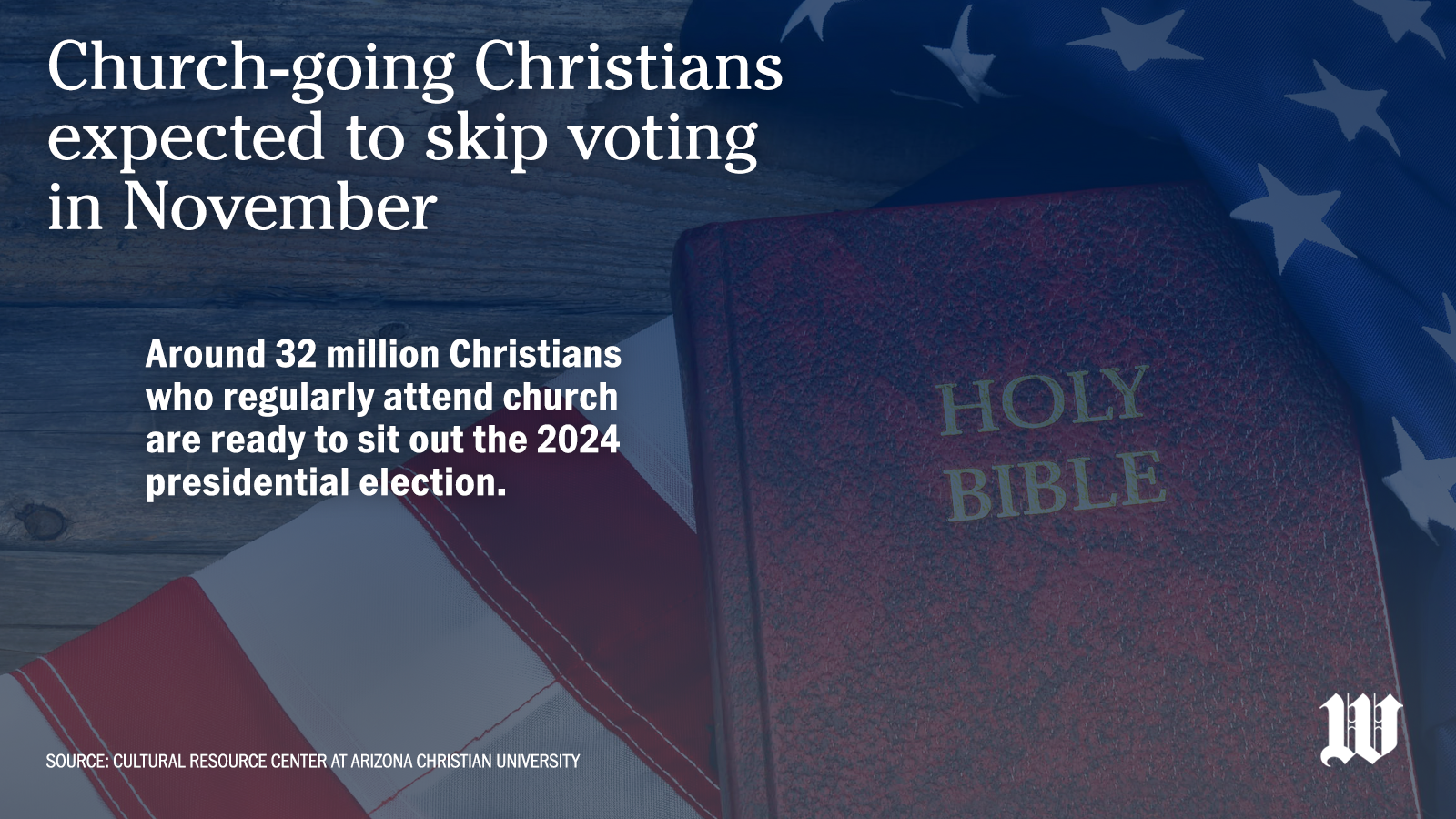Around 32 million Christians who regularly attend church are ready to sit out the 2024 presidential election, according to a new survey.
The findings reflect a high level of disillusionment, with many respondents doubting the impact of their vote and growing weary of increasingly contentious elections, said the pollsters at the Cultural Research Center at Arizona Christian University.
Of all potential voters likely to skip the polls, 68% said they lack interest in politics, 57% said they dislike all the major candidates and 55% said none of the contenders represent their key values.
If these trends continue, the study suggests Donald Trump’s reelection chances could be diminished, while Democratic nominee Kamala Harris might benefit from the disengaged voter base.
The 32 million church-attending Christian voters would represent roughly 20% of the 158 million who cast ballots in the 2020 presidential race.
Evangelical pollster George Barna, who led the study, said the millions of nonvoting Christians hold the key to shaping the election. However, many churches distance themselves from the election and refrain from encouraging congregants to vote.
“The 32 million Christians sitting in the pews each week who refuse to vote are a game-changer,” he said in a statement. “It’s low-hanging fruit for pastors as they try to motivate those congregants to carry out their civic duty and honor God through their influence on issues that matter in our culture.”
Mr. Barna said that in “a society where a huge majority of people want their lives to make a difference, and millions of Americans lament the lack of options for making their life count, what a sterling opportunity Nov. 5 represents.”
He pointed out how small margins in battleground states shaped the 2020 election when the margins of victory were a combined 587,000 votes in nine battleground states.
“Those votes determined nearly 40% of the Electoral College needed to win, with an average gap of just 60,000 votes per state,” Mr. Barna said.

The researcher also stressed that the election outcome impacts much more than the presidency: “It’s not only voting for the next president but also determining who will hold many other federal, state, and local offices, and what will happen with numerous referenda.”
• Emma Ayers can be reached at eayers@washingtontimes.com.




Please read our comment policy before commenting.